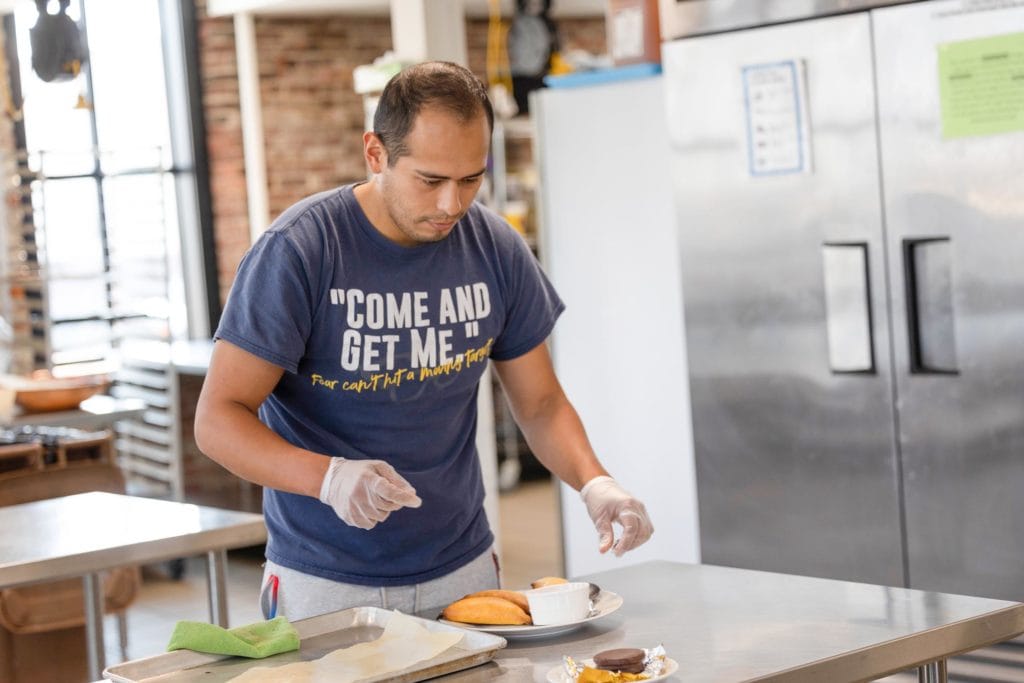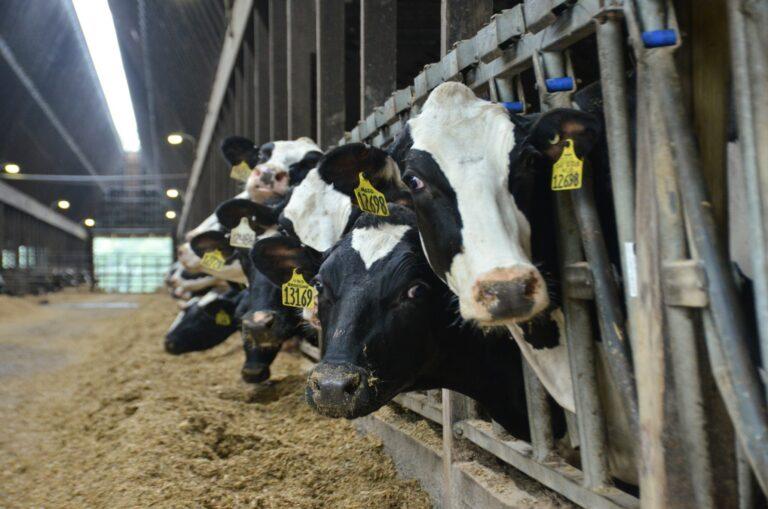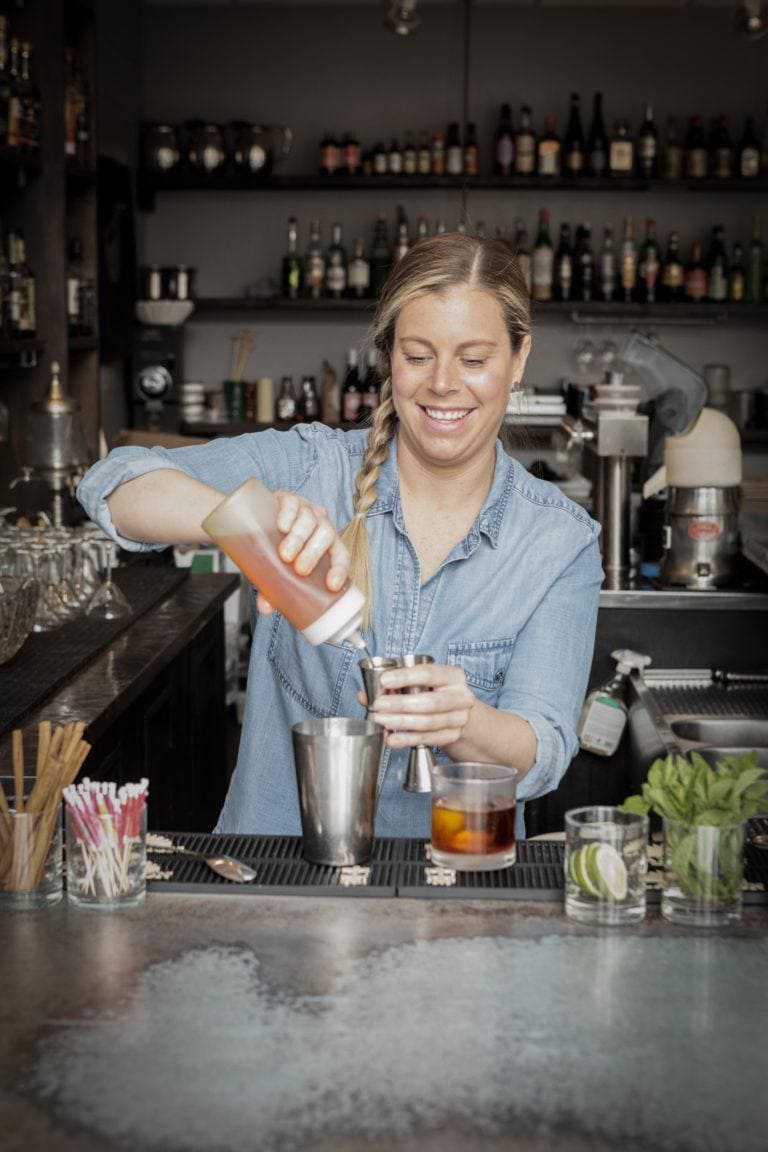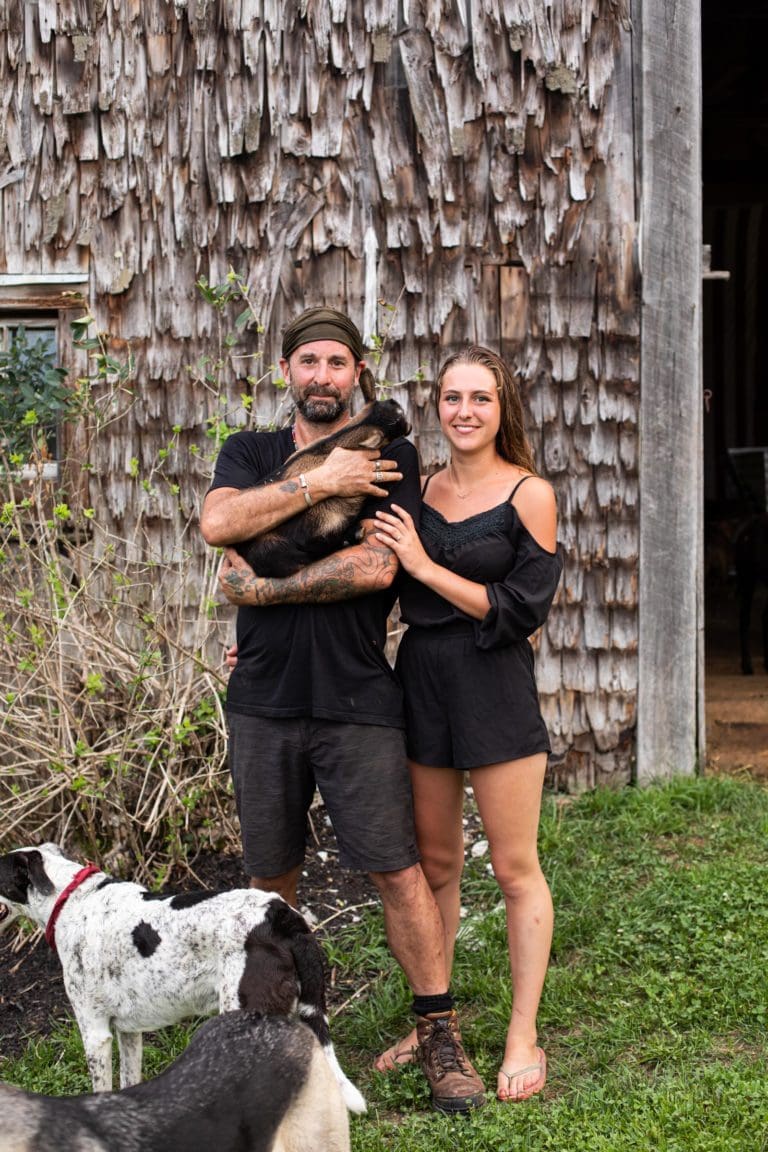Bolivian native Adrian Espinoza stuffs big flavors into his little pockets of empanada dough. He fills the savory hand pies he makes at Fork Food Lab in Portland with ingredients like beef, onions, cheddar cheese, and hot peppers and sells them frozen for six dollars each.
Espinoza worked a data entry job at a food company in Cochabamba in central Bolivia before moving to Maine in the fall of 2015. “Back in Bolivia I didn’t know how to make a sandwich,” Espinoza says—he just ate. But once he secured permission to work in the United States, he jumped at a job working in the now-shuttered Roustabout, an Italian restaurant on Washington Street in Portland.
“I got to learn about cooking, learn the vocabulary, learn about the people, all while making friends,” he says.
But in his new life, he missed eating authentic empanadas, a Latin American street food with a sturdy dough wrapped around savory fillings. So he got the crazy idea to make and sell them. It was crazy because while he’d eaten plenty of hand pies in his native Bolivia, where they are often called salteñas and filled with brothy stew thickened by gelatin, he had little to no experience making them himself.
Empanadas are a culinary tradition claimed by cultures across Latin America, so there are myriad ways to construct them. “Even in one single city, there are fifty or a hundred recipes because people try their own variations. Some people will fry them, some will bake them, some will put [in] cheese or beef,” Espinoza explains. While salteñas sit in an upright position with the seam on top, like an American football, Espinoza’s empanadas are to be baked lying on their side.
Early in 2017, he started experimenting with recipes, making batches of 10 empanadas at a time on his days off from the restaurant in search of perfection. He admits that during this trial-and-error period, many of the savory hand pies he made burst apart at their seams. Yet Espinoza persisted, and within the year, he had his first two empanada pop-ups at a pub called Bramhall in the West End of Portland.
According to Espinoza, the dough and authentic combination of flavors anchor any great empanada. Once he worked out his dough recipe (comprising Sir Galahad flour from King Arthur and butter from Cabot Creamery) he started filling it with cheese, caramelized onions, hot peppers, and oregano. He began with this flavor combination because it is the easiest to make, but since it is still his best-selling empanada, clearly he’s managed to nail the execution.

Espinoza has several filling combinations regularly on his menu, including a Mexican-inspired chorizo and cheese empanada with chili and garlic, and one called the Pino, filled with a traditional Chilean mixture of beef, sweet onions, raisins, and hard-boiled eggs. “I am always thinking about what the next filling will be,” says Espinoza. He is currently perfecting a chicken empanada.
He explains that throughout Latin America, empanadas are accompanied by salsa, but the type of salsa varies widely from region to region. His are served with a salsa consisting of fresh carrots, apple cider vinegar, peppers, and fresh herbs.
All of Empanada Club’s products are sold online (www.empanadaclubme.com) on Thursday nights and can be picked up or delivered on Fridays. Espinoza also sells empanadas at weekend farmers markets in Yarmouth, Cumberland, and Scarborough and at outdoor events throughout southern Maine. Swing by his booth if you want to talk about making them—they’re one of his favorite topics.














